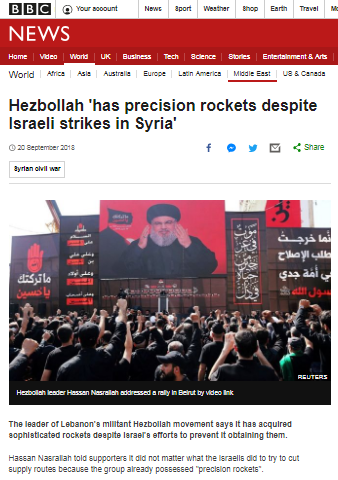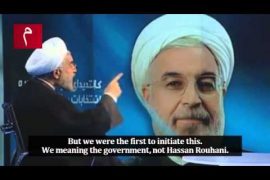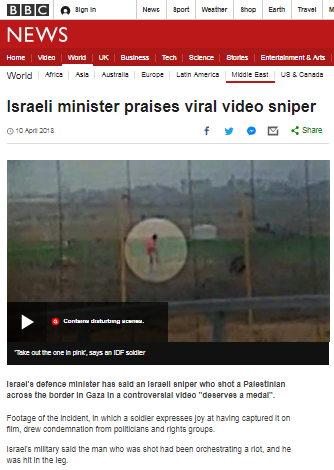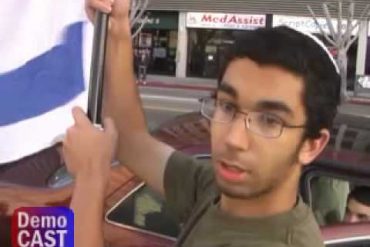Two recent reports by the BBC’s Middle East editor Jeremy Bowen – the man responsible for providing his employer’s audiences with “analysis that might help set it [news] in its context” – included interviews with the father of one of the teenage terrorists from the Jerusalem neighbourhood of Beit Hanina who stabbed a man and a thirteen year-old boy in nearby Pisgat Ze’ev on October 12th.
In an article titled “Jerusalem knife attacks: Fear and loathing in holy city“, which appeared on October 15th and remained in the BBC News website’s Middle East page’s ‘Features’ section for five consecutive days, readers once again saw politicised terminology used to describe the neighbourhood of Pisgat Ze’ev.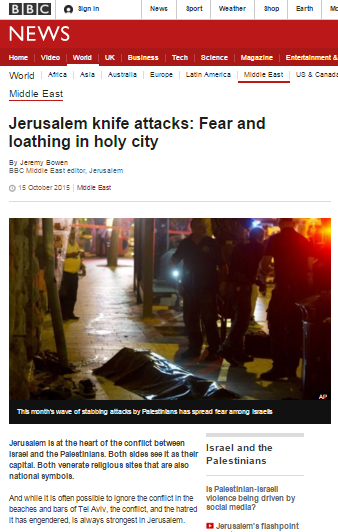
“When I met Khaled Mahania, the father of 15-year-old Hassan Mahania, who attacked and badly wounded young Israelis in a settlement in East Jerusalem, he is unable to explain.
Hassan was shot dead as he carried out the attack; his 13-year-old cousin and accomplice was run down by a car and badly hurt.
The Israeli government blames the attacks on incitement by political and religious extremists. A video has circulated of a Muslim cleric in Gaza waving a knife and calling on Palestinians to slit the throats of Jews.
Khaled Mahania told me he had not replaced his son’s smartphone since he broke it last year. He had no mobile internet access, and none at home.
Khaled had even thrown out the TV because he believed his children should read and talk to each other. Khaled broke down as he said his son was a typical teenager, not political and certainly no radical.”
In other words, readers are encouraged to believe that the “typical teenager” and his cousin were not influenced by “a video” (apparently the only example of incitement of which Bowen is aware, despite there being dozens of others in various media) because he did not have a mobile phone, internet access or a TV.
Interestingly, the terrorist’s family name has been given as Manasra by most media outlets and official sources – rather than ‘Mahania’, as used by Bowen. However, one place which does use the name “Mahayneh-Manasra” is the website of the Wadi Hilweh Information Centre – a highly partisan organisation which has been used by Bowen as a source of information in the past. Of course if the information about the current wave of terrorism in Israel being provided to BBC audiences is coming, even in part, from a body with a record of anti-Israel activity and links to similarly inclined organisations, then that should be clarified to audiences.
In a similarly themed filmed report produced for BBC Television news programmes and promoted on the BBC News website under the title “Middle East violence: ‘Grief cuts across divided Jerusalem’” on October 16th, Bowen tells viewers: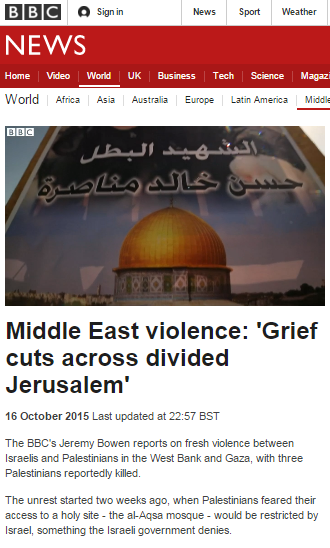
“Hassan Mahania [sic] aged 15 was shot dead after he stabbed two young Israelis and attacked the police. His father Khaled can’t understand where, as a parent, he went wrong.”
Footage then cuts to the weeping father saying:
“I don’t know. Really, I don’t know.”
But Bowen fails to bring his audience’s attention to the fact that the image appearing on screen as he leads into that segment shows a ‘martyrdom poster’ with a photo of Hassan Manasra together with a large picture of the Dome of the Rock. He fails to tell viewers that, for example, two days after the terror attack in Pisgat Ze’ev, the Palestinian Authority’s Ministry of Education glorified terror by planting trees in honour of ‘student martyrs’ such as Manasra. And he avoids informing BBC audiences that Hassan Manasra’s cousin and accomplice Ahmed Manasra (later exploited by Mahmoud Abbas for even more incitement) provided insight into their motivations.
““I went there to stab Jews,” he told investigators at the Hadassah Hospital where doctors have been treating him for wounds he sustained during the incident, police said.
Manasra said he was motivated to carry out the attack by the Palestinian claim that Israel has been trying to change the status quo on the volatile Temple Mount in Jerusalem.”
Likewise, Bowen ignores long-standing issues such as terror groups’ activities in Arab areas of Jerusalem and delegitimisation of Israel and incitement in schools – an issue now being investigated in schools in Beit Hanina attended by the Manasra cousins and an additional perpetrator of one of the recent terror attacks.
In the same filmed report Bowen also visited the family of another terrorist who, on October 13th, carried out this attack:
“On Malkhei Yisrael Street in Geula, a terrorist drove a car into a bus stop, hitting three pedestrians – one of whom, 60-year-old Rabbi Yeshayahu Krishevsky, was killed. The terrorist then left the vehicle and started repeatedly stabbing his victims.”
Bowen’s description of the incident is as follows:
“He [Rabbi Krishevsky] was killed last Tuesday when a Palestinian rammed his car into a bus queue.”
He continues:
“The rabbi’s killer, who was shot dead, came from Jabel Mukaber in occupied East Jerusalem. He was Alaa Abu Jamal who snapped; ground down by the occupation according to his cousin Wawiya [phonetic]. He wants peace, even though his house has just been destroyed in an Israeli reprisal against his brother who killed five Israelis last year.”
Bowen does not clarify that the incident “last year” is the terror attack in Har Nof in which worshippers at prayer in a synagogue were hacked to death by cousins Ghassan and Uday Abu Jamal from Jabel Mukaber. Neither does he tell viewers that Alaa Abu Jamal was an Israeli citizen who worked for the telephone company Bezek and used his company car to carry out the attack or that following the terror attack committed by his relatives last November in Har Nof, Alaa Abu Jamal publicly praised it, describing the attack as:
“…”something normal which could be expected from anyone who is brave and has a feeling of belonging to his people and Islam.
“This act was carried out because of the pressure placed on the Palestinian people by the Israeli occupation government in Jerusalem, as well as the continued acts of aggression against al-Aqsa,” he continued.
Following the axe attack that killed four worshipers and a policeman, Abu Jamal said: “People reacted with cries of joy when we received word of their death. People here handed out sweets to guests who came to visit us, and it was a great celebration for our martyrs.””
Clearly both the terrorists highlighted by Bowen in these two reports were influenced by the religiously themed incitement concerning Temple Mount. But did the BBC’s Middle East editor clarify that point to viewers and readers of these two reports and did his ‘analysis’ include any attempt to explain how that incitement is spread, by whom and to what end? Those questions will be examined in part two of this post.

